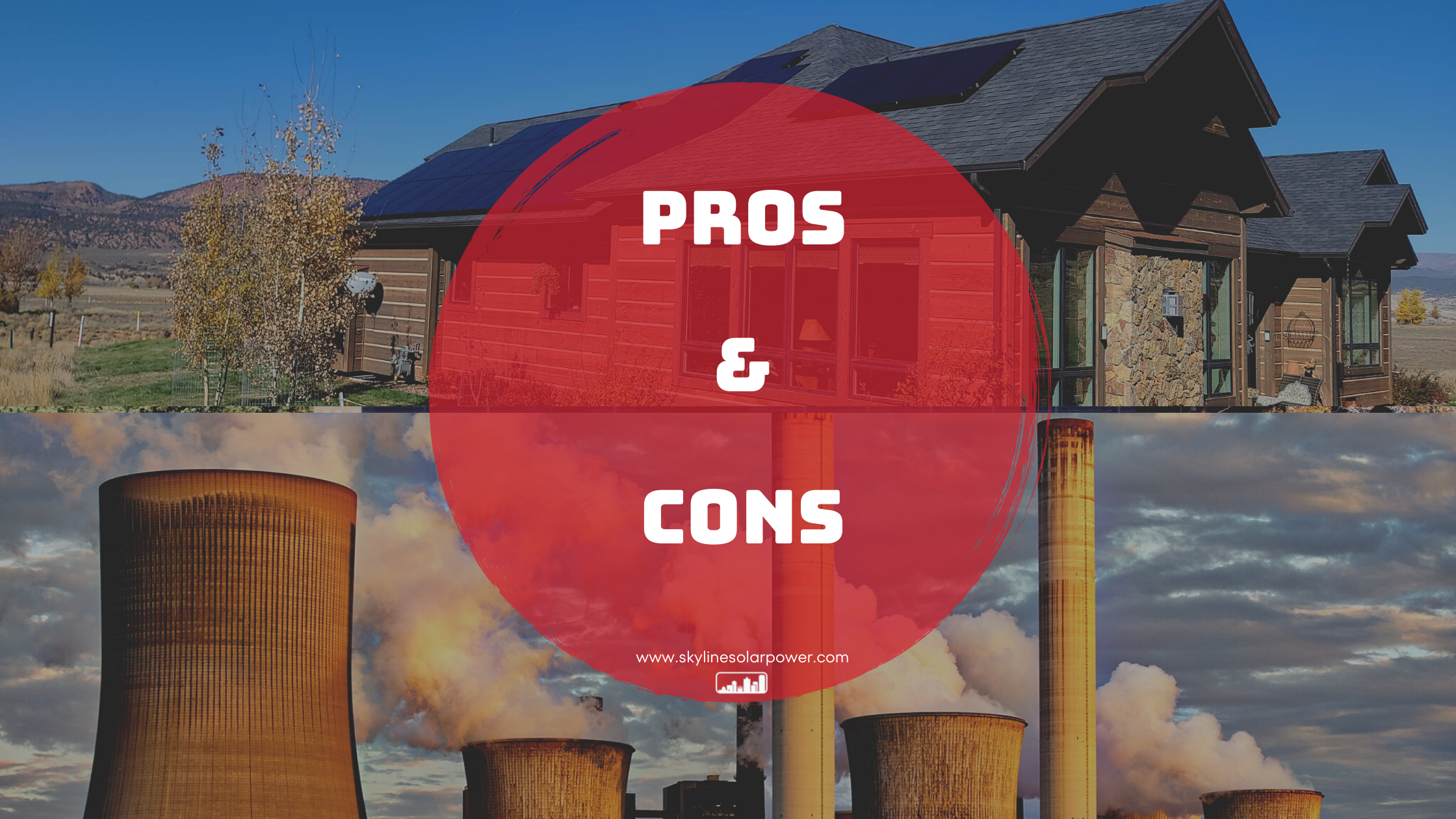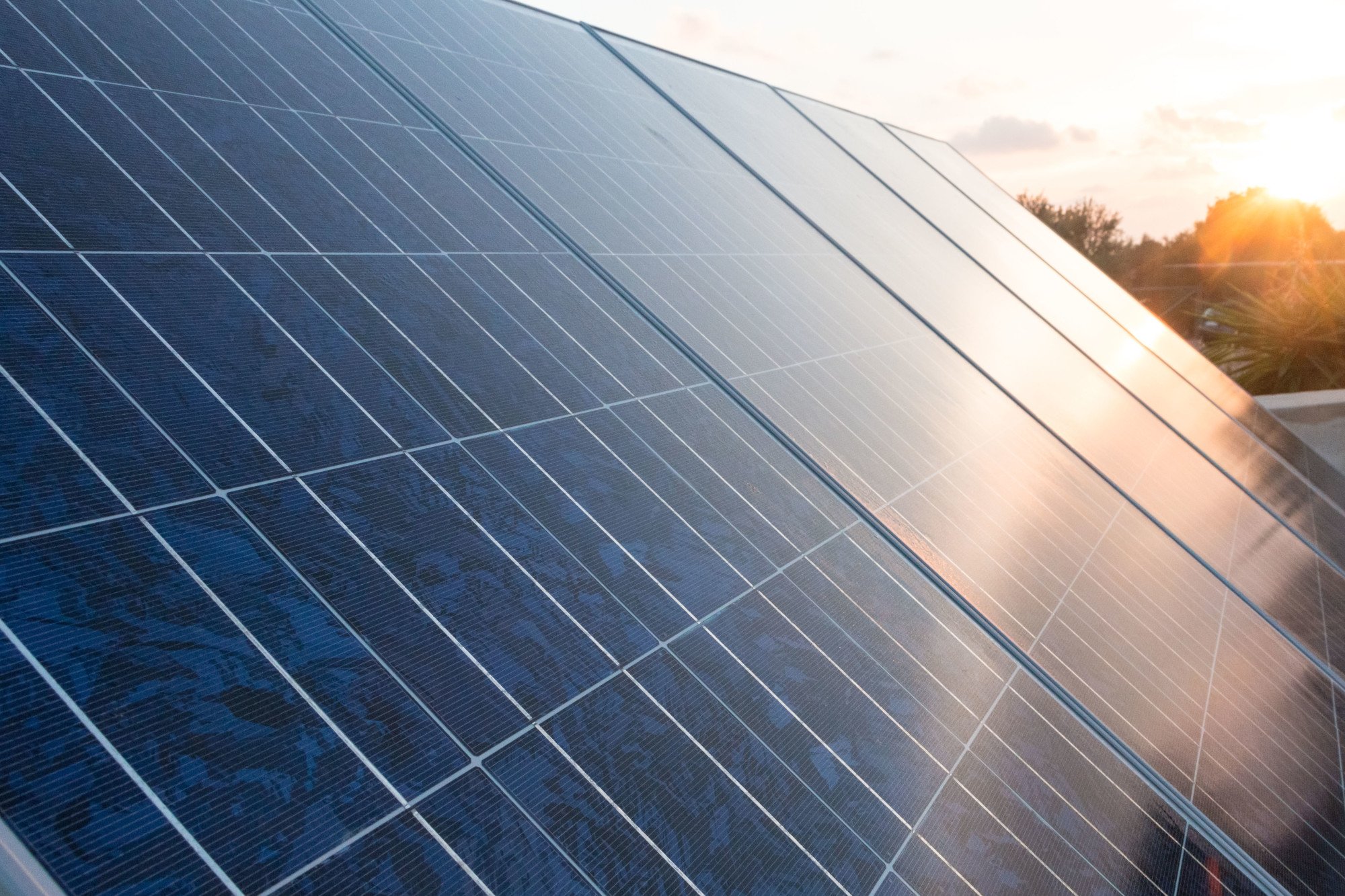Solar Panel Pros and Cons

Did you know there are more than 1.4 million solar panels being used throughout the United States? On top of that, the price of solar panels has been decreasing while the efficiency and demand for them have been increasing in recent years.
If that's not enough to persuade you to go solar, what about the fact that a single solar panel can produce up to 400 watts of energy? This can add up to around 1.5 kWh per day. This energy from one solar panel is enough to fuel your kitchen appliances without problems.
Impressive, isn't it? And think about how much energy can be produced with multiple home solar panels! Of course, solar energy output can depend on a variety of factors including the make of the solar panel itself along with environmental factors.
However, this is not to say that having solar panels for your home is not very beneficial. This is also not to say that there are not a few disadvantages to going solar either. Even so, there is no doubt that the pros outweigh the cons.
If you're on the fence about going solar, keep reading and see if solar power is right for you.
The Pros of Solar Panels
Since there are far more advantages compared to disadvantages when it comes to solar energy, we'll start with the positives. If you're wondering if solar panel installation is worth your investment, this is where you'll find out for yourself.
Due to the growing popularity of solar panels, you've likely heard a lot about them by now. It can be easy to follow growing trends and get solar panels because everyone else is getting them. However, deciding whether or not you want to go solar is an important decision.
If you decide you want to invest in solar panels, it should be up to you. Understanding the pros, in addition to the cons, will help you put the decision into perspective.
Without wasting any more time, let's explore the many advantages of getting solar panels for your home.
Reduce Your Electricity Bill
Most people at some point in their lives worry about the cost of their electricity bill. Every month, there's always a chance it could be more expensive.
You always need to ask yourself: Did I turn off the closet light? Did I leave the computer running overnight? How long was the TV on today?
This can become exhausting. No one wants to be worrying about electricity usage all day, every day. This is not to mention that the cost of electricity has been on a steady upward trend.
In the last few decades alone, the price of electricity rose about 40% and it doesn't look like it will be slowing down. This is where solar power comes into play.
Reducing costs on electricity is actually one of the most common reasons people decide to go solar. Think about it: instead of getting your electricity through utility companies, you're getting your energy from the sun. It almost sounds too good to be true.
On average, if you add solar panels to your home, you could save more than $1,000 per year on your electric bill. Over several years, this single thousand can turn into several thousand. This number can also vary depending on the cost of electricity in your area.
In some cases, if your solar panels are producing more power than you're consuming, you can actually sell this extra energy to utility companies in exchange for solar energy credits. These credits are tax credits and can be used on income taxes. This is a great way to save a little bit, or sometimes a lot, of extra money.
The Environmentally Friendly Solar Panel
If you've always cared about the environment, this is likely one of the more attractive advantages of going solar. In a world full of pollution and fossil fuels, solar energy is a very appealing renewable energy source. To be precise, renewable energy is defined as energy that can be used indefinitely and does not have a finite source.
While we will run out of the pockets of oil and natural gas in the planet, solar panels can rely on the sun for energy without any fear of running out of solar rays.
You may believe that solar power cannot be used in environments that have long, dark winters or long periods of clouds and rain. It may seem that there is no choice but to use fossil fuels in these locations. This is not the case.
Solar panels are advanced and can absorb plenty of solar energy during dark, cloudy weather. This is because, even though it may seem dark, solar rays are able to penetrate clouds and be absorbed by solar technology without much trouble.
Another benefit of solar panels is that they do not produce any greenhouse gasses that can pollute the atmosphere. This, of course, all helps in improving your carbon footprint, which is defined as the amount of carbon dioxide emissions something produces.
Energy Security off the Grid
You may not realize it, but you most likely depend on the power grid to live out your everyday life. You may realize how dependent you are on the grid only when the power is knocked out by a bad storm or a problem with your neighborhood's electrical lines.
Once you're without power, what do you do? You can't turn on the lights, you can't use your oven to cook, you can't watch TV or listen to the radio, and sooner or later, your phone will die if you have no power to charge it. It sounds awful, doesn't it?
This is the terrible truth if relying on the power grid. Solar power, however, can save you from this reliance, especially if you invest in a solar battery that allows you to store your solar power. Since you are getting your power from the sun instead of external sources, you can live comfortably off the electrical grid.
Another side of this is that you are also being economically independent with solar panels. Instead of relying on foreign coal, oil, and gas which are always becoming more expensive, you have your own steady flow of electricity from the comfort of your home.
Solar Power Is Cheap
A common misconception is that solar panels are too expensive for the average American to afford. They're advanced and can save you money, so it must be too good to be true. This is not the case.
Over the past couple of decades, the cost of solar panels has been decreasing. On average, buying solar panels in addition to the installation costs around $20,000, but the exact number varies from state to state.
This may seem like a lot, but considering the amount of money you can save over time and with the help of solar energy credits and federal incentives, this is a very good investment. Depending on the cost of solar panels in your area, your solar panels can easily make back their worth within a few years.
As long as you don't plan on moving too soon after going solar, there's no need to worry about losing your money to solar panels.
Your Home Value Will Increase
Speaking of moving out of your home, if you do plan to sell your house at some point after getting solar panels, you will be surprised regarding your house's value. This is because installing solar panels for your home can increase your home's value. In fact, solar panels can add more value to a property than a swimming pool or fancy landscaping.
Who wouldn't want to buy a house that already has a built-in renewable energy system? To put it into perspective, adding solar panels to your home can increase its value by $9,000 or more. This is not mentioning that solar panels are one of the most important factors homebuyers look for when house hunting.
Houses with solar panels are also known to sell very quickly. This is because those who are on the lookout to buy a house are looking for ways to save money on electricity. The housing market is always very competitive, and solar panels will do wonders for giving your home an edge over the competition.
Low Maintenance
You may love the idea of having solar panels for your home, but what about the maintenance? No one wants to spend hours out of their day climbing up on the roof and cleaning mounds of debris off of their home's solar panels so they can continue working properly.
Luckily for you, solar panels are very low maintenance. Since solar panels are not mechanical, that is, they do not contain moving parts, you don't have to worry about any parts or springs coming loose or breaking free.
While the insides of solar panels are delicate, the glass that covers the inside is very durable so you don't need to worry about your panels breaking. Most solar panels are designed to tolerate storm winds and pressure such as a heavy layer of snow.
Finally, there's no need to clear off any debris. This is because solar panels are installed at an angle that allows leaves and sticks to slide off without any trouble.
The Cons of Solar Panels
While the disadvantages of solar panels are few, they exist and it is important to take them into account if you're thinking about going solar.
Let's dive right into it.
No Solar Power at Night
While solar panels work well in cloudy weather, they do not work at night. This is because the solar cells, also known as photovoltaic cells, require sunlight to generate energy. But this does not mean you can't use solar power at all during the night.
With a battery for solar energy storage, you can use the energy your solar panels generated during the day to power your home at night. However, if you do not have a solar battery, you, unfortunately, will not be able to harness your solar energy during nighttime.
Solar Panels Are Not 100% Environmentally Friendly
While solar panels overall are great for helping the environment, the manufacturing of solar panels is not 100% eco-friendly. This is because of the materials solar panels are made of.
For example, most solar panels contain sulfur hexafluoride, a compound that is harmful to the environment. It is particularly when old solar panels are disposed of that solar pollutants are introduced to the environment.
However, it is important to note that, when compared to burning fossil fuels, any adverse environmental impacts of solar panels are minimal.
Solar Panels Need Space
It is important to keep in mind that solar panels need plenty of space when being installed on your roof so they can absorb optimal amounts of solar energy. If your house is small or has a cramped roof, this can be a problem.
Some solar panels also do not mix well with certain types of roof tiles. Other than that, if your house is surrounded by a cluster of trees or anything else that prevents the sun from hitting your roof, this can be a problem when installing solar. This is why before going solar it's important to talk with a professional solar contractor for an opinion.
The Pros and Cons of Solar
Now that you know all about the pros and cons of solar, you can decide if a solar panel is in your future. Solar panels support the environment, save you money on electricity, and are low maintenance.
If you're still debating whether going solar is what you want, check out our page and learn more about solar energy.

.jpg)
